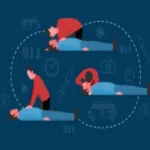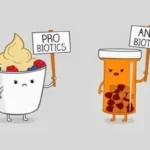The Human Side of Healthcare
Walk into any hospital or medical clinic and you’ll see amazing technology everywhere. Machines that can look inside your body, computers that track every vital sign, and robots that help with surgery. It’s pretty incredible what science can do these days. But here’s the thing – all that fancy equipment can’t do the most important part of healthcare, which is actually caring about the person who needs help.
Technology can diagnose problems and even fix some of them, but it can’t hold someone’s hand when they’re scared. It can’t notice that a patient seems sadder than usual or celebrate with someone who just took their first steps after an accident. Machines are great at collecting data, but they’re terrible at being human. And being human is what healthcare is really all about.
There’s a whole world of healthcare workers whose job is basically to be the human part of medicine. They’re the ones who make sure patients feel safe, comfortable, and cared for while all the technical stuff is happening around them.
The People Who Actually Talk to Patients
Doctors and nurses are important, but they’re usually rushing between patients and focused on medical tasks. The people who really get to know patients are often the ones who spend the most time with them. Home health aides sit with elderly clients for hours, helping them with daily activities and just being there for conversation. Physical therapy assistants work with people week after week, cheering them on as they rebuild their strength.
Hospital orderlies and patient transporters see the same people day after day during long stays. They’re often the ones who remember that Mrs. Garcia is worried about her cat at home or that Mr. Thompson gets nervous before his treatments. These workers become familiar faces in scary, unfamiliar places.
The demand for these human-focused roles keeps growing because people need that personal connection, especially when they’re dealing with health problems. Many areas are actively recruiting for these positions. Those considering this type of work can find opportunities everywhere – even searching for a home care job in Philadelphia reveals how many organizations need people who can provide that essential human element in healthcare.
What Machines Can’t Replace
Artificial intelligence can read X-rays better than most doctors now. Surgical robots can make more precise cuts than human hands. But no computer program can figure out that someone is feeling hopeless and needs encouragement. No robot can sense that a patient is scared about what their diagnosis means for their family.
The human side of healthcare involves reading emotions, picking up on unspoken concerns, and knowing when someone needs to talk versus when they need quiet company. It’s about understanding that the same medical condition affects different people in completely different ways based on their personality, family situation, and personal history.
Someone recovering from a stroke might need technical help with physical therapy exercises, but they also need someone who understands how frustrating it is to relearn basic skills. A cancer patient might have the best medical team in the world, but they still need people around them who can provide hope and normalcy during treatment.
The Daily Reality of Human Healthcare
Healthcare workers who focus on the human side deal with real emotions every day. They see people at their most vulnerable moments – when they’re in pain, scared about their future, or struggling to do things that used to be automatic. It’s not always easy, but it’s always real.
These workers develop genuine relationships with the people they help. They remember birthdays, ask about grandchildren, and know each person’s preferences and pet peeves. A home health aide might be the highlight of an elderly person’s week because they’re the one person who consistently listens and cares.
The work varies depending on the setting, but it always involves patience, empathy, and the ability to find small ways to make someone’s day better. Maybe it’s helping someone write a letter to their family, sitting with them while they eat lunch, or just being a calm presence during a difficult medical procedure.
Why This Matters More Than Ever
Healthcare has become incredibly complex and specialized. Patients often see multiple doctors, take numerous medications, and navigate complicated insurance systems. In the middle of all this complexity, they need people who can help them feel human rather than just another case number.
Mental health awareness has also highlighted how much emotional support affects physical healing. Depression and anxiety actually slow down recovery from injuries and surgeries. Loneliness can worsen chronic conditions and increase the risk of serious complications. Having healthcare workers who pay attention to these emotional needs isn’t just nice – it’s medically important.
Families are often stressed and overwhelmed when a loved one needs care. They appreciate healthcare workers who can provide not just professional services but also emotional support for everyone involved. When a home health aide updates a worried daughter about her mother’s mood and appetite, that communication is part of the healing process too.
The Skills That Actually Count
The human side of healthcare requires skills that can’t be taught from a textbook. Patience when someone is having a bad day. The ability to stay calm during emergencies. Knowing how to communicate with people who have different backgrounds, ages, and personalities.
Good healthcare workers also know how to balance being professional with being genuinely caring. They can maintain appropriate boundaries while still forming meaningful connections with the people they help. They understand that sometimes the most important part of their job is just showing up consistently and being someone their clients can count on.
Physical skills matter too, but they can be learned. Moving someone safely, taking vital signs, or helping with personal care tasks are all teachable. The harder skills to develop are the interpersonal ones – reading people’s moods, knowing when to push and when to give someone space, and finding ways to motivate people who are struggling.
Building Healthcare Around Humanity
The best healthcare systems understand that technology and human care work together rather than competing with each other. High-tech hospitals are hiring more patient advocates and comfort care specialists. Home healthcare agencies are growing because they can provide both medical services and personal attention in familiar surroundings.
This creates opportunities for people who want healthcare careers focused on relationships rather than just technical procedures. The jobs exist at every level, from entry-level positions that provide basic training to specialized roles for people with more experience. What they all share is the understanding that healing involves both fixing medical problems and caring for the whole person experiencing those problems.
The human side of healthcare isn’t going anywhere. As medicine becomes more advanced, the need for people who can bridge the gap between technology and humanity becomes even more important. Someone has to make sure patients feel heard, valued, and cared for as individuals rather than just medical cases to be solved.







